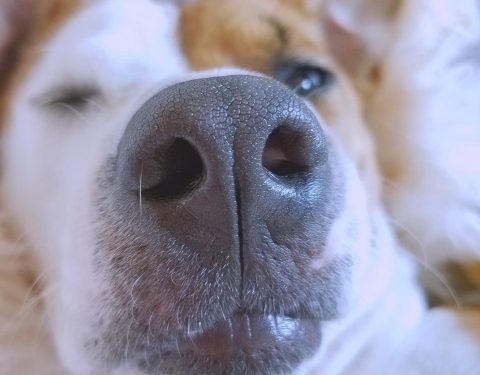Chocolate is toxic to dogs. While rarely fatal, chocolate ingestion can result in significant illness. Chocolate is toxic because it contains a chemical called theobromine, as well as caffeine. Theobromine is the main toxin in chocolate and is very similar to caffeine. Both chemicals are used medicinally as a diuretic, heart stimulant, blood vessel dilator, and a smooth muscle relaxant. Dogs cannot metabolize theobromine and caffeine as well as people can. That is why dogs are more sensitive to the chemicals’ effects. If your dog has ingested chocolate, it’s important to act quickly as chocolate can be toxic to dogs. Here are the steps you should take:
- Assess the situation: Determine the type of chocolate your dog has consumed and the quantity. Dark chocolate and baking chocolate contain higher levels of theobromine, which is toxic to dogs, compared to milk chocolate.
- Contact your veterinarian: Call your veterinarian or an emergency veterinary clinic immediately. Provide them with information about the type of chocolate ingested, the amount, and your dog’s weight. This will help them assess the level of toxicity and provide appropriate guidance.
- Watch for symptoms: Monitor your dog closely for any signs of chocolate toxicity. Symptoms may include restlessness, increased thirst and urination, vomiting, diarrhea, rapid breathing, elevated heart rate, tremors, seizures, or even collapse. Keep note of any observed symptoms to inform the veterinarian.
- Do not induce vomiting without veterinary guidance: Do not attempt to induce vomiting in your dog without specific instructions from a veterinarian. Depending on the situation, inducing vomiting may or may not be recommended.
- Follow veterinary instructions: Follow the instructions provided by your veterinarian. They may advise you to bring your dog in for immediate treatment, induce vomiting, administer activated charcoal to absorb any remaining chocolate toxins, provide supportive care, or monitor your dog’s condition in a veterinary clinic.
- Prevent future incidents: Keep all chocolate and cocoa products out of your dog’s reach. Make sure that family members and visitors are aware of the dangers of chocolate to dogs and take precautions to prevent accidental ingestion.
Remember, the severity of chocolate toxicity depends on various factors such as the type of chocolate, the amount ingested, and the size of your dog. Seeking veterinary assistance is crucial, even if you are unsure about the quantity or type of chocolate consumed. Prompt treatment can greatly increase the chances of a positive outcome for your dog.









